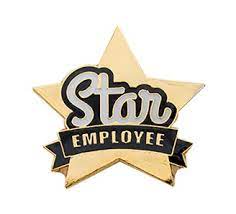Sometimes, it’s easiest to just be the boss.
When the hard, thankless work of leadership seems to be too much, when your efforts to empower, influence, and mobilize people are thwarted by a soul-crushing lack of progress or buy-in, or when you’re simply overwhelmed by the tension of competing values, sometimes it feels good to simply exercise your authority and make the call.
And to be fair, sometimes that’s exactly the way it needs to be. When lives are on the line, firefighters, police officers, and other first responders don’t stop to host a focus group or convene a staff meeting: someone in a position of authority makes a decision, gives clear, concise orders, and those orders are immediately expertly carried out.
But for most of us, most of the time, we’re not faced with high-stakes life-and-death decisions at every turn. When the work isn’t simply to get something done, but rather to help people grow, to encourage ideas other than our own, and to approach challenges from new perspectives, it’s best to get comfortable with discomfort, and to embrace the idea that the easiest solution may not be the best solution.
Exercising authority often means providing protection, direction, and order to members of a group. This usually feels good to the authority figure, who probably already knows the answers, and it feels good to the group that someone knows where they’re going and how to get there. This is a great way to get reliable, consistent results: just keep doing what you’ve always done, and you’ll probably keep achieving the same outcome.
But we live in a world of constant change, and when we fail to adapt in the face of new information and changing variables – that is, if we keep trying to solve new problems with outdated solutions – then we could be in for a whole lot of trouble.
The work of leadership is to mobilize people to make progress on tough issues, to allow members of the group to own the work while leaders guide them, support them, and retain responsibility for the ultimate outcomes. Sometimes the work of leadership involves exercising authority, but often it’s founded in asking great questions, exploring provocative interpretations, and being willing to spend time – usually more than is comfortable – diagnosing the root of problems and challenges rather than accepting the first easy solutions that pop up.
So, when those situations arise – and they always do – when you’re frustrated, tired, and cranky, it may be the perfect time to check in with yourself to ask why you’re feeling that way:
What observations can you make about the way work is getting done (or not getting done), and what insightful interpretations can help you understand why things aren’t working out the way you think they should?
Are people in your group hesitant to engage in the work that so desperately needs to be done?
What barriers can they help you see that aren’t clear from your vantage point, and how might you help to remove them?
And perhaps the most dreaded of all questions for leaders to ask: what is my part of the mess – how am I getting in the way?
While the process can be uncomfortable, the art of asking great questions – and of listening thoughtfully to the answers – is often the key to unlocking your team’s potential and to elevating your leadership game.


